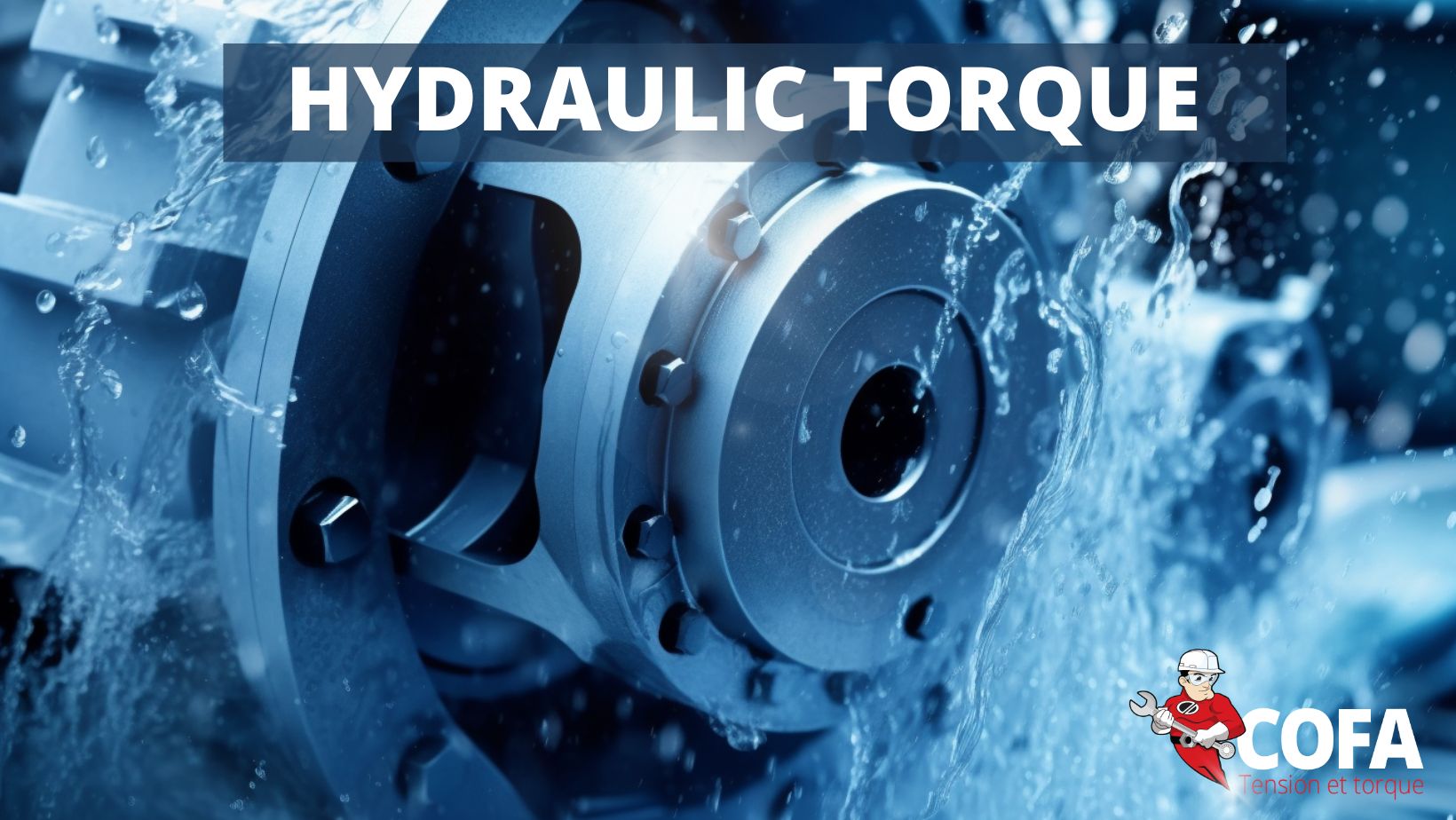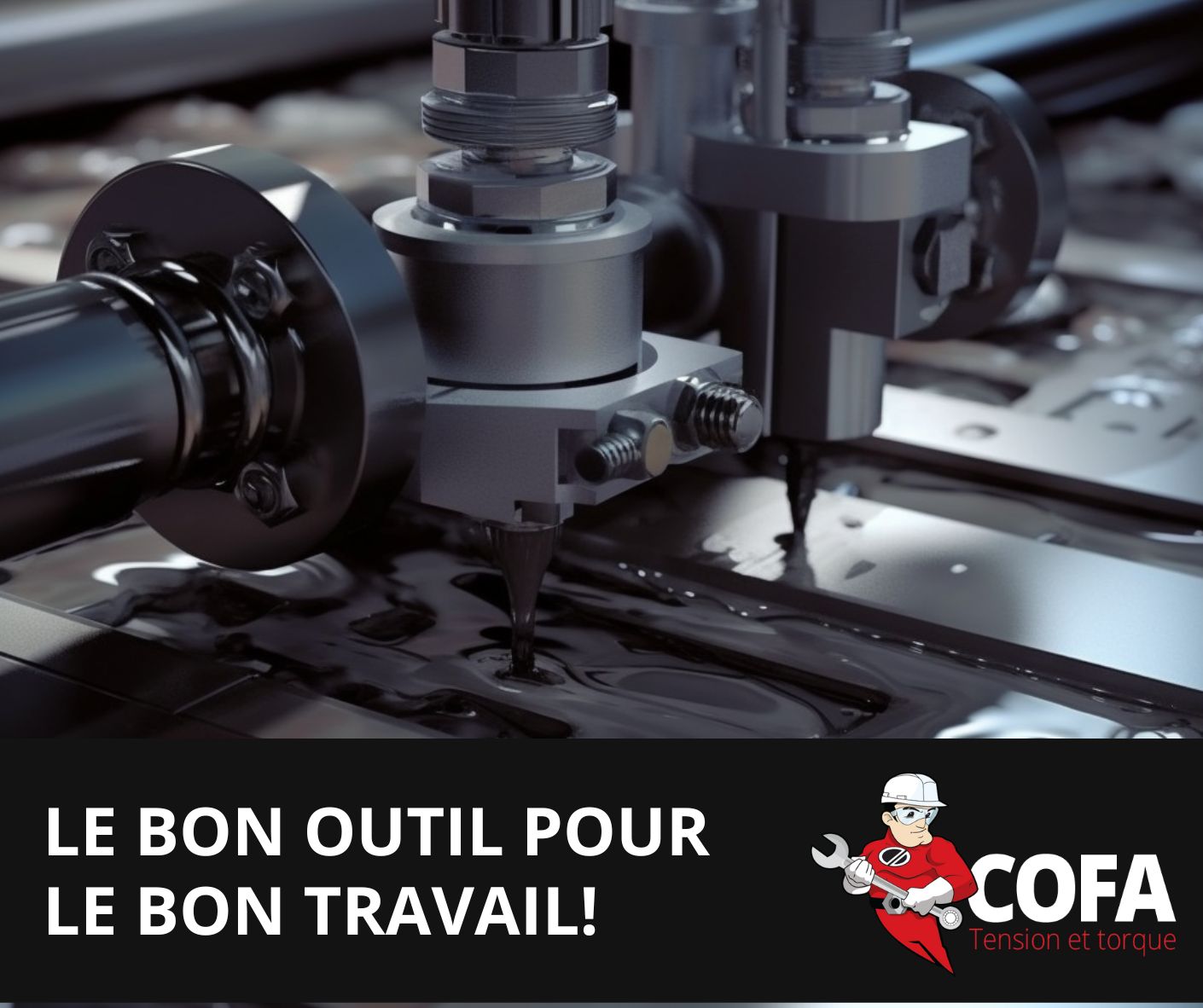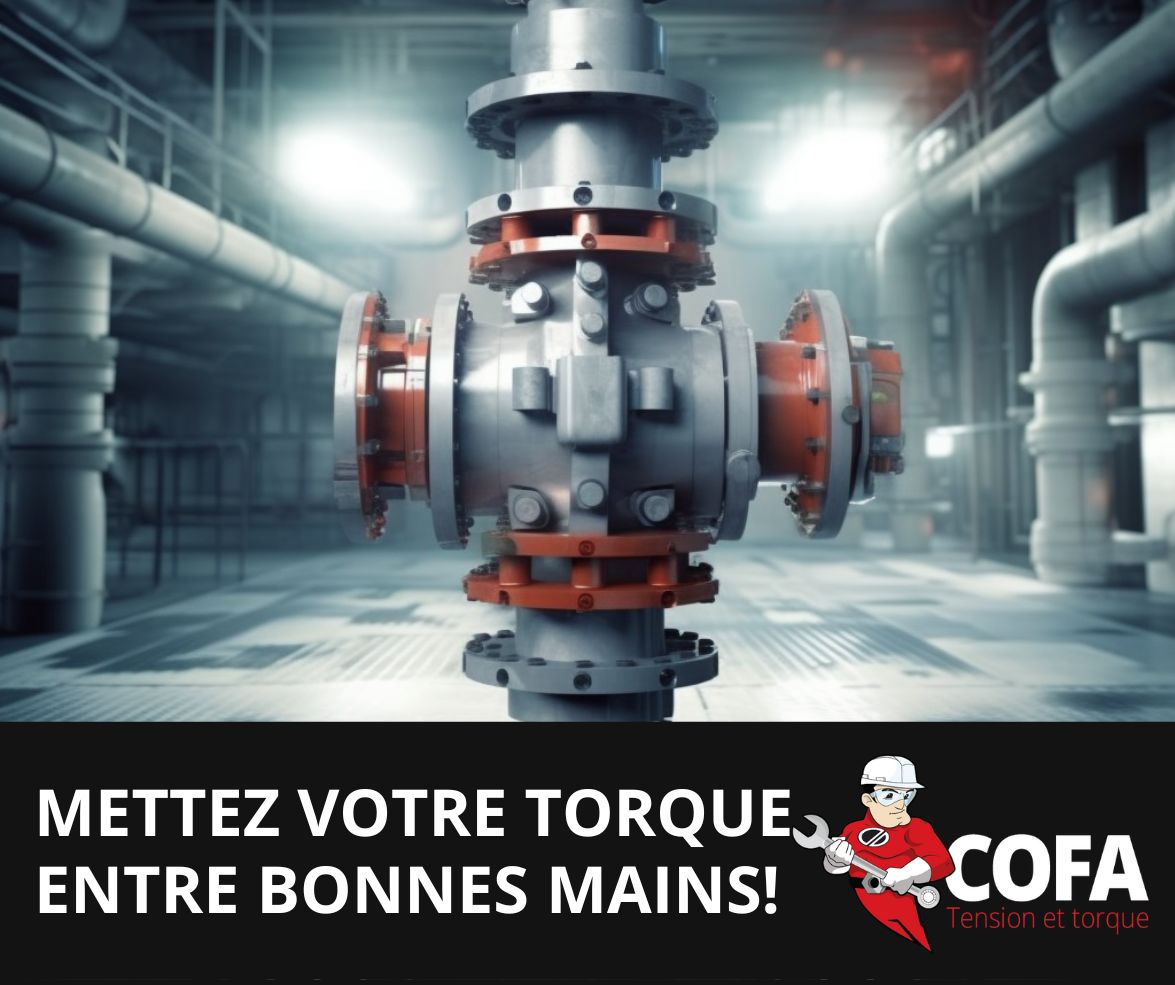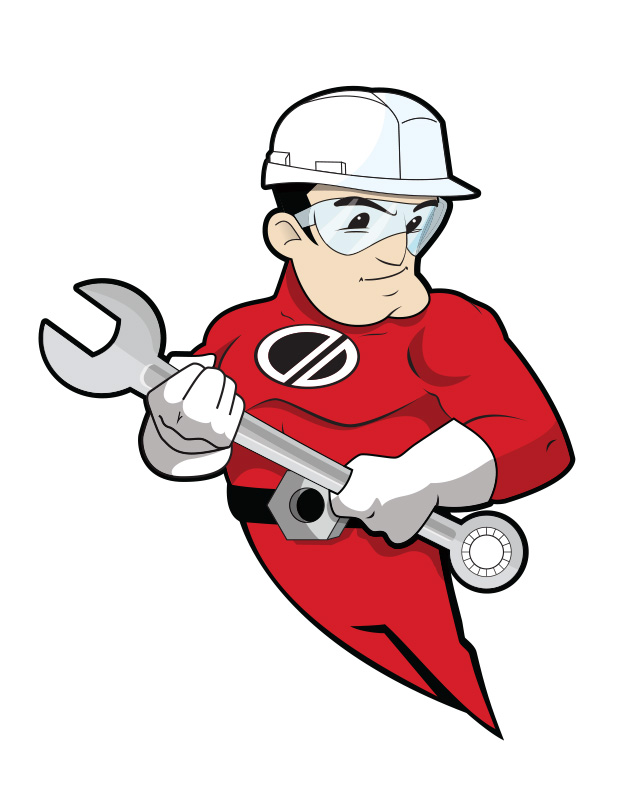The Evolution of Hydraulic Torque: From Water to Oil
A brief history of Torque hydraulics
Hydraulic torque, as its name suggests, is based on the use of hydraulic force to generate torque. If we trace its history, the fundamental idea of using fluids to transfer force dates back to antiquity, especially with the work of scientists such as Archimedes and his studies on the properties of liquids.
In the beginning, it was the power of water that was mainly used to exploit its hydraulic properties. Water, being easily accessible, offered a means of exerting pressure or force on a given surface. This force was then used to carry out various mechanical works.
However, water had some drawbacks. It has a relatively high freezing point and a low boiling point, which limits its operating temperature range. In addition, water is incompressible and can cause corrosion of metal components.
With the technological evolution, the industry has started to turn to a more efficient alternative: oil. Hydraulic oil, compared to water, has several advantages. It is more resistant to temperature variations, offers better lubrication, does not cause corrosion and has compressibility characteristics suitable for many industrial applications.
Thus, hydraulic torque has undergone an evolution from water-based systems to oil-based ones. This transition has opened the door to greater accuracy, reliability and longevity of hydraulic equipment. In the bolting world, this has translated into an increased ability to tighten or loosen bolts accurately, efficiently and safely.

25 THINGS YOU NEED TO KNOW ABOUT HYDRAULIC TORQUE!
Le monde industriel est complexe, et le torque hydraulique en est un composant essentiel. Chez COFA, nous nous engageons à fournir des solutions fiables, sûres et efficaces. Voici un guide complet qui répond à vos questions les plus courantes sur le torque hydraulique.
1. Qu’est-ce que le torque hydraulique?
Le torque hydraulique est une méthode de serrage utilisant la force de l’huile sous pression pour appliquer un couple de force à un boulon ou une vis.
2. Comment fonctionne un torque hydraulique?
En utilisant la pression hydraulique, l’outil exerce une force sur un mécanisme pour appliquer un couple précis sur l’élément de fixation.
3. Torque hydraulique ou pneumatique : lequel choisir?
Tandis que le torque pneumatique utilise de l’air comprimé, le hydraulique utilise des fluides sous pression. Chez COFA, nous recommandons le hydraulique pour sa précision et sa puissance.
4. Pourquoi opter pour un outil de torque hydraulique?
Ils offrent une plus grande précision, réduisent le risque de surtorque et peuvent s’adapter à des espaces restreints.
5. Les avantages du serrage hydraulique?
Précision, rapidité, adaptabilité et sécurité sont parmi les principaux avantages.
6. Comment déterminer la capacité d’un outil hydraulique?
La capacité est généralement indiquée par le fabricant, mais il est crucial de calibrer régulièrement les outils, un service que COFA excelle à fournir.
7. Normes spécifiques pour les outils hydrauliques?
Oui, des normes régissent leur fabrication et leur utilisation pour garantir la sécurité et la fiabilité.
8. Comment entretenir les outils hydrauliques?
La maintenance régulière et la calibration, comme proposé par COFA, sont essentielles pour garantir leur longévité et leur efficacité.
9. Risques associés à l’utilisation d’un torque hydraulique?
Les risques peuvent inclure des blessures dues à un surtorque ou à un bris d’outil. C’est pourquoi chez COFA, nous mettons l’accent sur la formation adéquate et la calibration.
DÉGÂTS ET ENDOMMAGEMENT DES CLÉS DYNAMOMÉTRIQUES HYDRAULIQUES :
Lorsqu’une clé dynamométrique n’assure pas une précision dans la transmission du couple, cela peut non seulement abîmer l’outil, engendrant des frais de réparation, voire le rendre totalement hors d’usage. Mais aussi, cela présente des risques d’accidents corporels et des impacts négatifs sur vos équipements.
SÉCURITÉ ET RISQUES PHYSIQUES :
Une clé dynamométrique mal calibrée peut causer des traumatismes graves à son utilisateur… Pour approfondir les enjeux liés au boulonnage, découvrez notre article sur la Sécurité des mains
DÉGÂTS SUR LES COMPOSANTS ET IMPACTS SUR L’INFRASTRUCTURE :
Un équipement de serrage, tel qu’une torque gun, non calibré risque de ne pas délivrer le couple nécessaire, ce qui pourrait endommager, voire rendre défectueux l’élément sur lequel il est utilisé (comme une vanne, bride, poutrelle, etc.). De plus, cela peut provoquer des dommages indirects sur vos installations ou infrastructures.
Un outil de torque non calibré peut entraîner des blessures corporelles sévères à la personne qui l’utilise...
Pour comprendre les risques associés au boulonnage,
10. Peut-on “surtorquer” avec un torque hydraulique ?
Oui, c’est possible. C’est pourquoi la calibration régulière et l’utilisation d’outils de qualité, comme ceux de Hytorc, sont essentielles.
11. Quelle est leur précision?
Avec des outils de qualité et une calibration correcte, la précision est exceptionnellement élevée.
12. Comment se former?
COFA propose des formations pour garantir une utilisation sécurisée et efficace.
13. Adaptabilité des outils hydrauliques?
Grâce à leur conception, ils sont adaptés à divers environnements, y compris les zones restreintes ou à faible luminosité.
14. Quels sont les coûts?
Cela varie en fonction de la qualité et de la capacité, mais investir dans des outils de qualité comme Hytorc est un choix judicieux et rentable à long terme.
HYDRAULIC TORQUE: THE RIGHT TOOL FOR THE RIGHT JOB!

Hydraulic Torque with COFA: Frequently asked questions (continued)
Hydraulic torque is a crucial element in the industrial world. At COFA, not only do we have in-depth expertise in this field, but we also focus on safety, precision and efficiency.
15. How does COFA guarantee the safety of hydraulic tools?
Safety is at the heart of everything we do at COFA. We place emphasis on regular tool calibration to avoid the risk of overtorque, breakage, and injuries. Using high-quality tools, such as those from Hytorc, also plays a major role in ensuring safety.
16. Why is torque tool calibration so important?
Calibration ensures that the tool performs exactly as intended, delivering the precise amount of force required. This minimizes the risk of overtorque, which can result in equipment breakage or injury.
17. How does the calibration process work with COFA?
Our calibration process is meticulous and rigorous. We use state-of-the-art equipment to ensure that every tool is calibrated to the highest industry standards.
18. What does COFA offer in terms of training?
COFA offers comprehensive training courses on the safe and efficient use of hydraulic torque tools. Our team of experts ensures that every participant is well informed and equipped to manage these tools responsibly.
19. Why choose Hytorc hydraulic torque tools?
Hytorc is a leader in the world of hydraulic torque. Their tools are renowned for their quality, durability and precision. By choosing Hytorc with COFA, you’re opting for the best in the industry.
20. How can COFA help if I have a problem with a tool?
We offer comprehensive support to our customers. In the event of a problem, our team is ready to intervene quickly to provide solutions, whether for maintenance, repair or advice.
21. Are hydraulic tools suitable for all environments?
Thanks to their robust design, hydraulic tools are suitable for a wide range of environments, including the most demanding. And with the Hytorc range, this adaptability is further enhanced.
22. What is the typical service life of a hydraulic tool?
With regular maintenance and proper use, these tools can last for many years. The superior quality of Hytorc tools also guarantees long service life.
23. What is the difference between hydraulic torque and other tightening methods?
The main difference is the power source. While other methods may use compressed air or electricity, hydraulic torque uses the force of pressurized oil to apply torque.
24. How can you be sure of the reliability of your hydraulic tool?
In addition to regular calibration, choosing a recognized brand like Hytorc and working with a trusted partner like COFA are essential.
25. Trust COFA for your hydraulic torque needs!
It’s not a question, but we’ll give you the right answer:
PUT YOUR TORQUE IN GOOD HANDS!
COFA stands for expertise, safety and quality. We are committed to providing the best hydraulic torque solutions and to supporting our customers every step of the way.
Don’t wait any longer. For quality hydraulic torque expertise, call on COFA. ?️

In short, every controlled clamping application deserves the right tool, and the right tool deserves to be maintained and calibrated! Now you know why! If you have any questions about your project :
CALL US!
You can follow all COFA Hytorc’s activities on Linkedin
#COFA #COFAHytorc #bolting #industrialbolting #bolting #industrial #safety #safework #CSSTprevention #tension #Hytorc #supersocket #green #socket #highpressuresockets #greensocket #hytorctools #Ecolinesocket #ecologicalsocket #economicsocket #Hytorcway #boltingsolutions #boltingsolutions #torque #torquesolutions #hightorque #torquewrench #hightorquewrench #durablesocket #HighPerformanceSocket #hytorcmanualtorque #controlledtightening #bolting #torque #torquewrench #manualtorque #tension #lubrication #industriallubricants #torquelocation #torquelocation #hydraulictorque #industrialToollocation #SuperSocket

